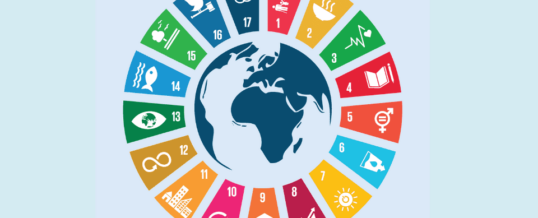
McLeod Group guest blog by Mario Renaud and Robert Letendre, March 7, 2023
Those of us who have been closely associated with Canada’s international development assistance over the past few decades have noted the catastrophic impact of the 2013 merger of the Canadian International Development Agency (CIDA) with the Department of Foreign Affairs and International Trade. As argued in previous blogs (here and here), the effects include the loss of expertise in international development, proportionally less direct aid to countries due to an increase in humanitarian and multilateral aid; and a sad and unacceptable multiplication of red tape. The synergies that were invoked to justify the merger never materialized.
Canada’s once enviable reputation has been negatively affected, to the extent that the OECD Development Assistance Committee has recommended that Canada modernize its development assistance vision and its understanding of aid effectiveness.
It is time to accept that there are insurmountable incompatibilities between the aid program as it was conducted under CIDA and as it is now being managed by Global Affairs Canada. GAC, with its culture of prolonged analysis and the resulting multiplication of administrative controls, is not able to deliver programming that requires agility and creativity.
Faced with such a trainwreck, what can be done to relaunch Canada’s international development cooperation so that it can meet the significant and complex challenges we now face globally?
A separate organization
We propose the establishment of a new, independent and specialized institution that would gradually take responsibility for the implementation of the international cooperation program. It would have an international board of directors that would be responsible for broad policy decisions. The application of these policies would be undertaken by experienced management, supported by seasoned international and Canadian staff. The presence of GAC on the board of directors would ensure consistency with government policies and ministerial accountability with respect to the Official Development Assistance Accountability Act (2008). This act specifies that Canadian aid must contribute to reducing poverty, take into account the perspectives of the poor and respect international human rights obligations.
This new organization would operate independently of GAC, under a model similar to Canada’s regional economic development agencies. It would finance programs that are developed jointly by partner countries and their citizens, in inclusive partnerships with Canadian and international partners in the public, private and non-profit sectors.
Fully accountable to Parliament, the organization would be inspired by private sector rules rather than by the Financial Administration Act. It would completely untie human and material resources, thereby dramatically increasing local inputs. Over the years, Canada has invested heavily in the professional and academic training of recipient countries’ citizens. This new structure would prioritize their employment throughout all aspects of all projects.
Focus on Africa
Priority should be given to Africa, as well as vulnerable countries elsewhere. All projects would be designed so as to contribute to the achievement of the UN Sustainable Development Goals by 2030. A common priority would be to mitigate the impacts of climate change and to promote low-carbon development.
Management staff could be based within the appropriate African regional institutions. The majority of these relatively new regional institutions share a modern vision of development cooperation and inclusive partnerships, avoid excessive bureaucracy or partisan political influence, and practice a transparent approach to cooperation that is based on the rule of law.
It is, of course, difficult to set up partnerships in support of local development in countries where the political class and the administration are corrupt, or where armed conflicts are taking place, where there may be no governance worthy of the name, or where there are retrograde policies that deliberately ignore the rights of women and girls. In the case of such “failed states”, Canadian assistance would be limited to the support of emergency aid, to the financing of peacekeeping missions and, where possible, via local or international NGOs. GAC could remain in charge of funding of peace processes and security operations.
A foreign policy worthy of the name
Since the 1960s, thanks in large measure to greater international cooperation and solidarity, the quality of life has improved significantly around the world, including reduced rates of death, disease and starvation, as well as a rapid increase in economic and social wellbeing. For most of that period, Canada provided leadership to these initiatives.
Over the past decade, the international community has agreed to eradicate poverty worldwide, to strengthen prosperity, to ensure basic education and health services for all, especially for women and girls, while protecting the environment and biodiversity. However, it is easy to become discouraged by the immense challenges before us. They include: the acceleration of climate change, which has already led to an increase in natural disasters; sustained deadly conflicts in many regions of the world, including the superpower engagement in Ukraine; the migration of populations from the southern hemisphere to the northern hemisphere; the COVID pandemic and the appearance of other potentially destructive viruses; and the sudden increase in poverty, hunger and starvation in several parts of the world.
We must face these challenges through greater cooperation and solidarity between peoples and governments. Canada must find the will, the energy and the intelligence to exercise a style of international leadership that can lead to greater peace, justice and solidarity. As difficult as it may be, Canada must mobilize public opinion on the issues that now face us. In order to succeed, we need a clear international vision and a modern foreign policy that can make Canada a key player in a more peaceful, fairer, more equitable and sustainable world.
Mario Renaud and Robert Letendre are members of GREDIC, a group of former leaders of international development organizations. Image: Cooperation Canada.
